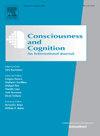A plank across the explanatory gap: The case of pain
IF 2
3区 心理学
Q2 PSYCHOLOGY, EXPERIMENTAL
引用次数: 0
Abstract
According to a widely shared belief, an explanation of phenomenal experience in terms of neural mechanisms is impossible in principle. The reason for this “Explanatory Gap” is supposed to be a basic incompatibility between phenomenal and neuroscientific knowledge: while the latter is framed in terms of functional relationships, it is impossible to capture phenomenal experience in functional terms.
Here, we will take three steps to avert this conclusion and show what an explanation of the qualitative character of phenomenal experience might look like. In Step I, we show that two pivotal assumptions underlying the “Explanatory Gap” argument are unfounded. This means that the problem of phenomenal experience can be solved with the familiar methods of hypothesis development and testing. In Step II, we hypothesize that paradigmatic sorts of phenomenal experience like affective pain can be captured in functional terms, provided the function is framed in cognitive rather than behavioral terms: feeling affective pain is feeling an urge to avoid. In Step III, we will present empirical evidence corroborating this claim. We will also indicate how this functional description can help to identify the neural mechanisms underlying affective pain experience. We take this as a proof of principle showing that the qualitative character of phenomenal experience can be explained in objective neuroscientific terms. We will conclude with some remarks on how our approach might contribute to future progress in our understanding of consciousness in general.
跨越解释空白的一块木板:疼痛的例子
根据一种普遍的信念,用神经机制来解释现象性经验在原则上是不可能的。这种“解释差距”的原因应该是现象学知识和神经科学知识之间的基本不相容:虽然后者是根据功能关系构建的,但不可能用功能术语捕捉现象学经验。在这里,我们将采取三个步骤来避免这个结论,并展示对现象经验的定性特征的解释可能是什么样的。在第一步中,我们证明了“解释差距”论点背后的两个关键假设是没有根据的。这意味着现象经验的问题可以用我们熟悉的假设发展和检验的方法来解决。在第二步中,我们假设,像情感疼痛这样的典型现象体验可以用功能术语来描述,前提是这种功能是用认知而不是行为术语来描述的:感受情感疼痛就是感受一种逃避的冲动。在第三步中,我们将提出证实这一说法的经验证据。我们还将指出这种功能描述如何有助于识别情感性疼痛体验的神经机制。我们认为这是一个原理证明,表明现象经验的定性特征可以用客观的神经科学术语来解释。最后,我们将对我们的方法如何有助于我们对一般意识的理解的未来进展作一些评论。
本文章由计算机程序翻译,如有差异,请以英文原文为准。
求助全文
约1分钟内获得全文
求助全文
来源期刊

Consciousness and Cognition
PSYCHOLOGY, EXPERIMENTAL-
CiteScore
4.30
自引率
8.30%
发文量
123
期刊介绍:
Consciousness and Cognition: An International Journal provides a forum for a natural-science approach to the issues of consciousness, voluntary control, and self. The journal features empirical research (in the form of regular articles and short reports) and theoretical articles. Integrative theoretical and critical literature reviews, and tutorial reviews are also published. The journal aims to be both scientifically rigorous and open to novel contributions.
 求助内容:
求助内容: 应助结果提醒方式:
应助结果提醒方式:


